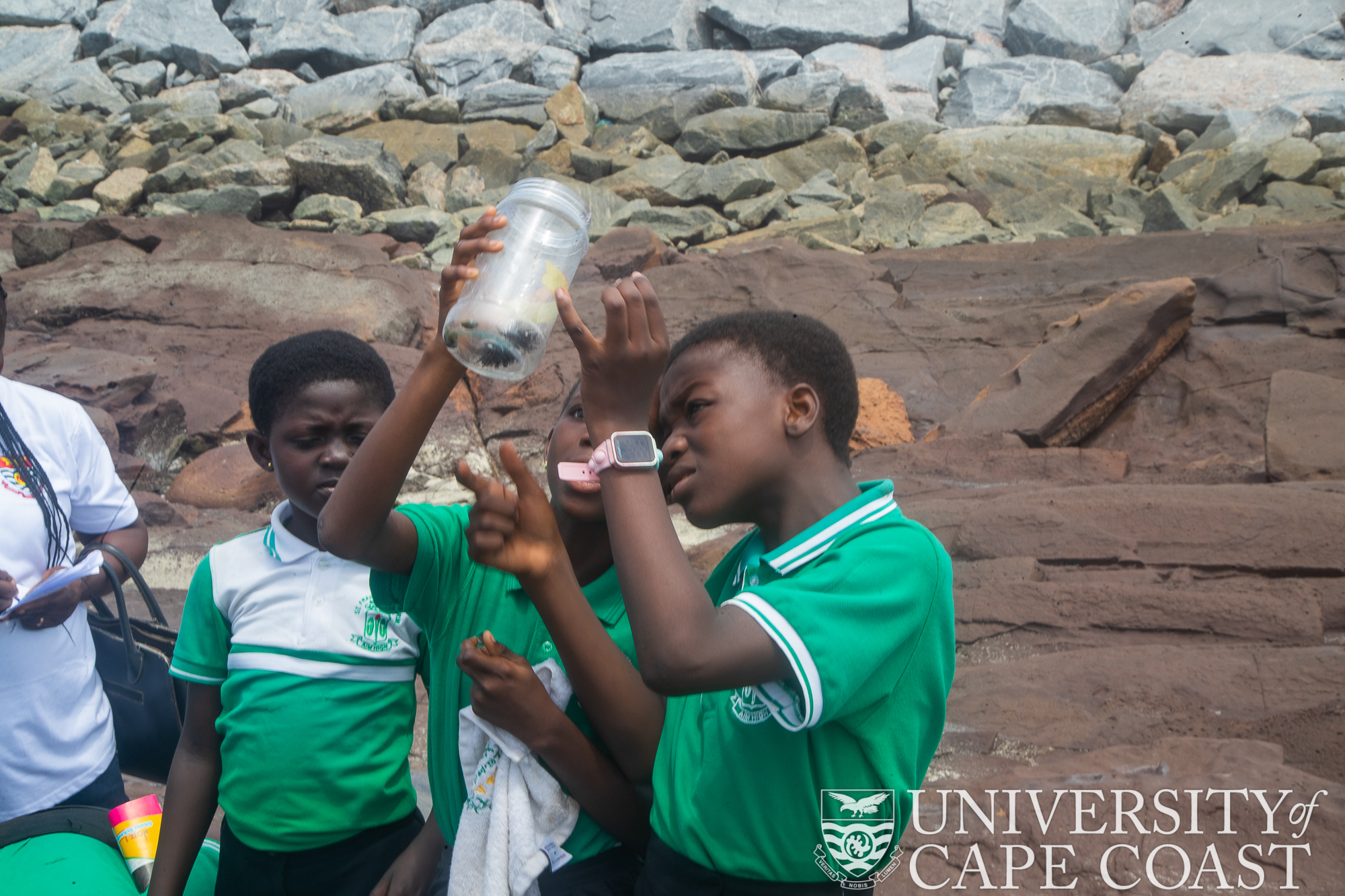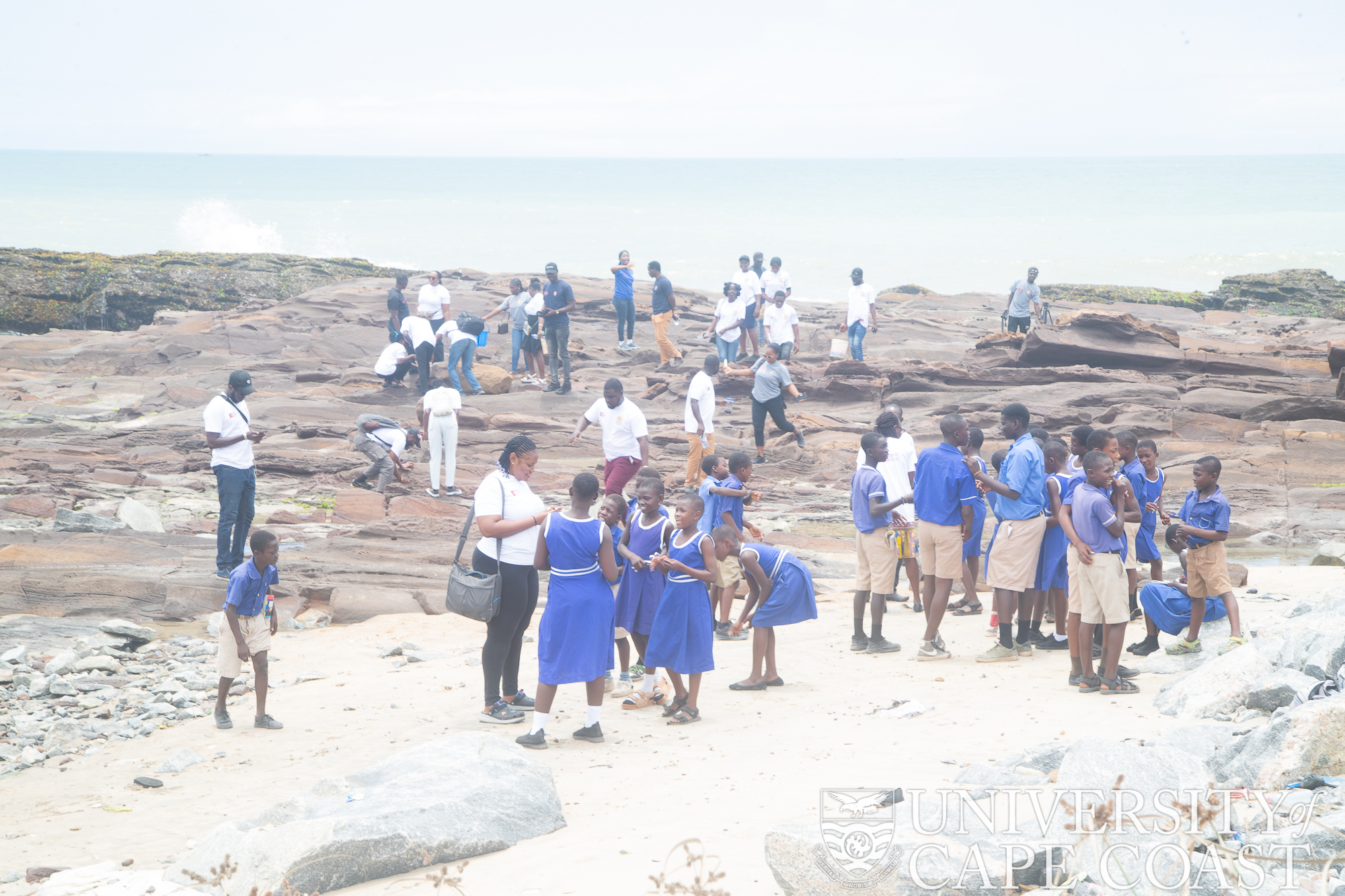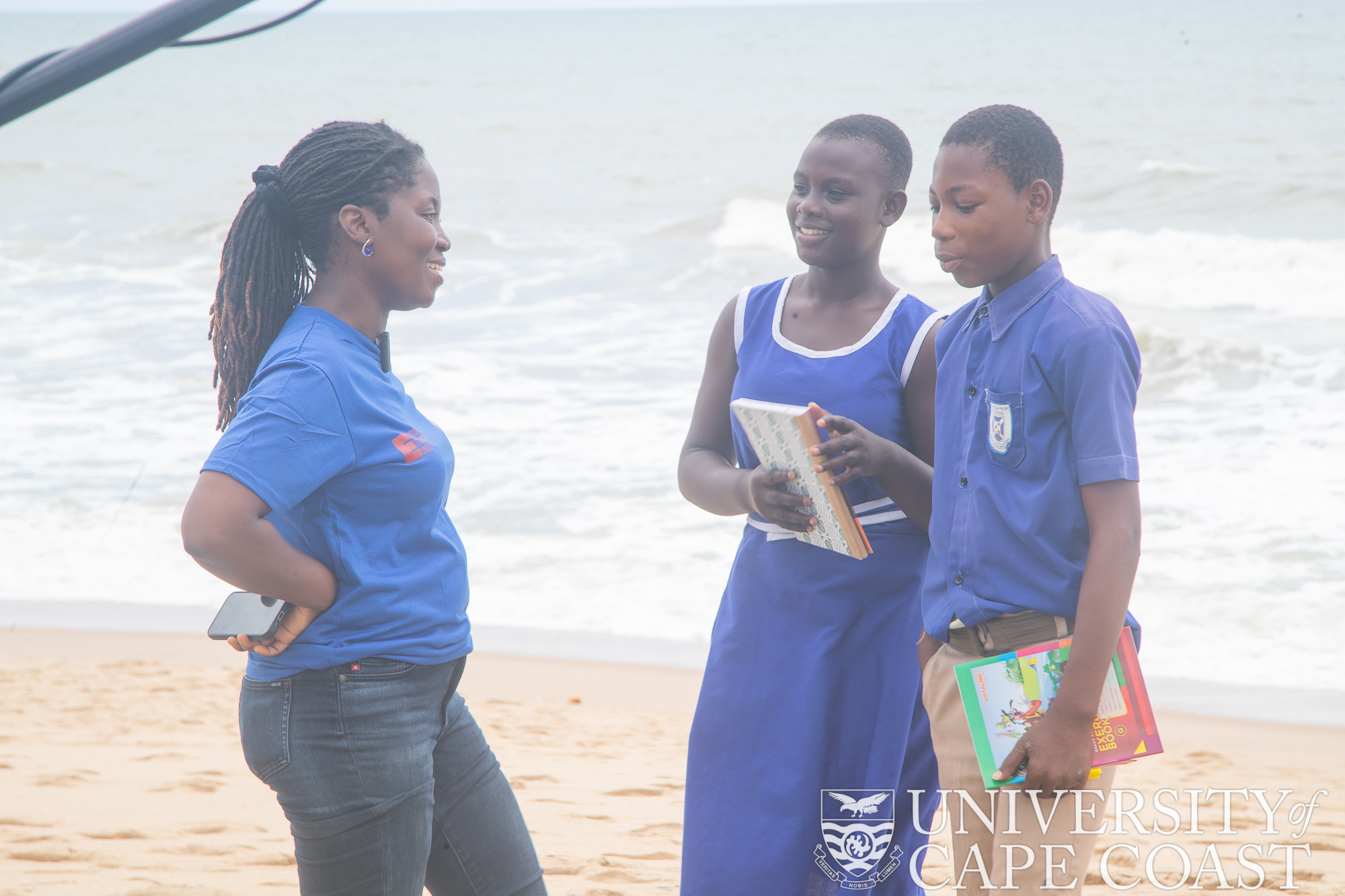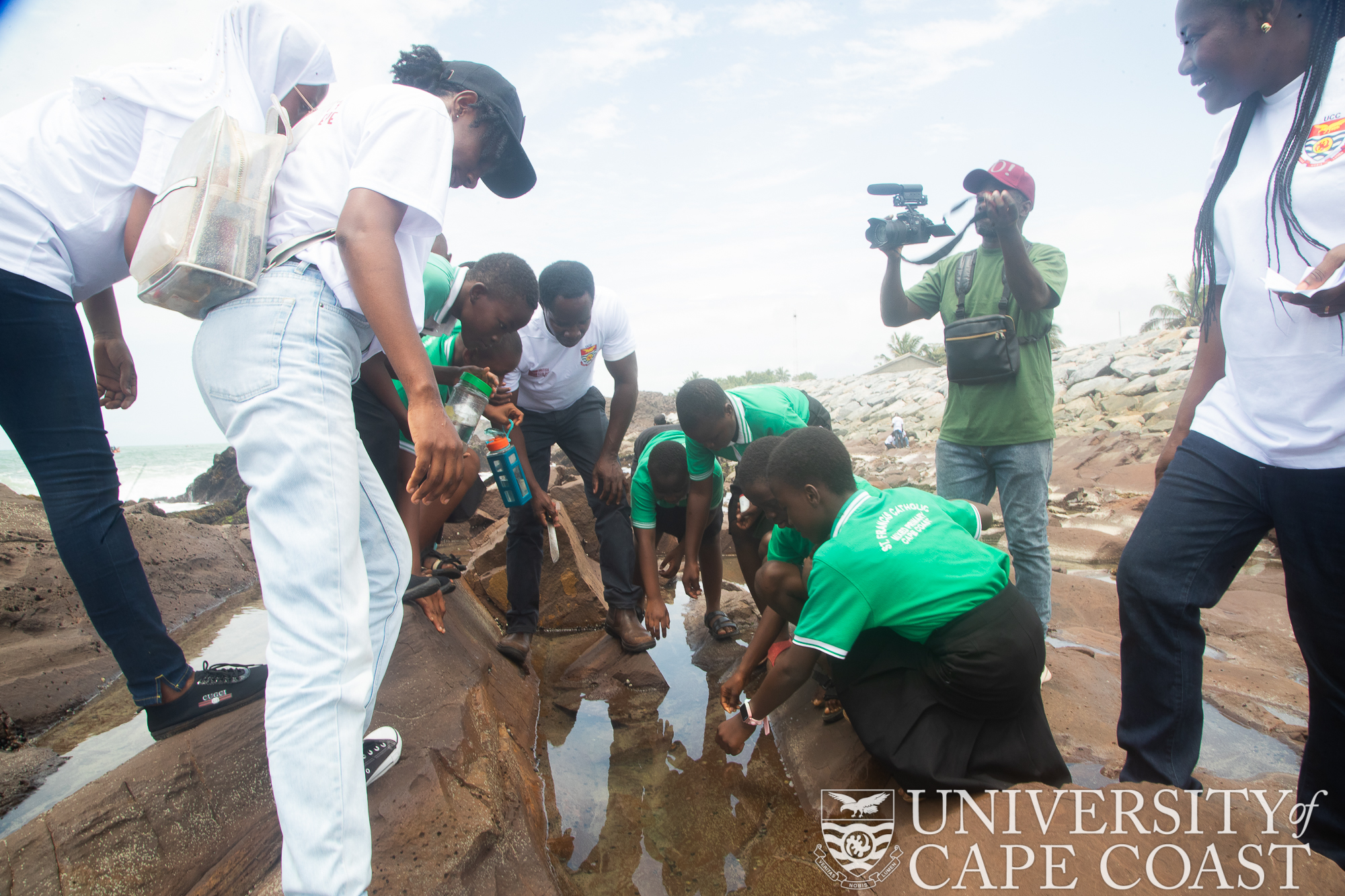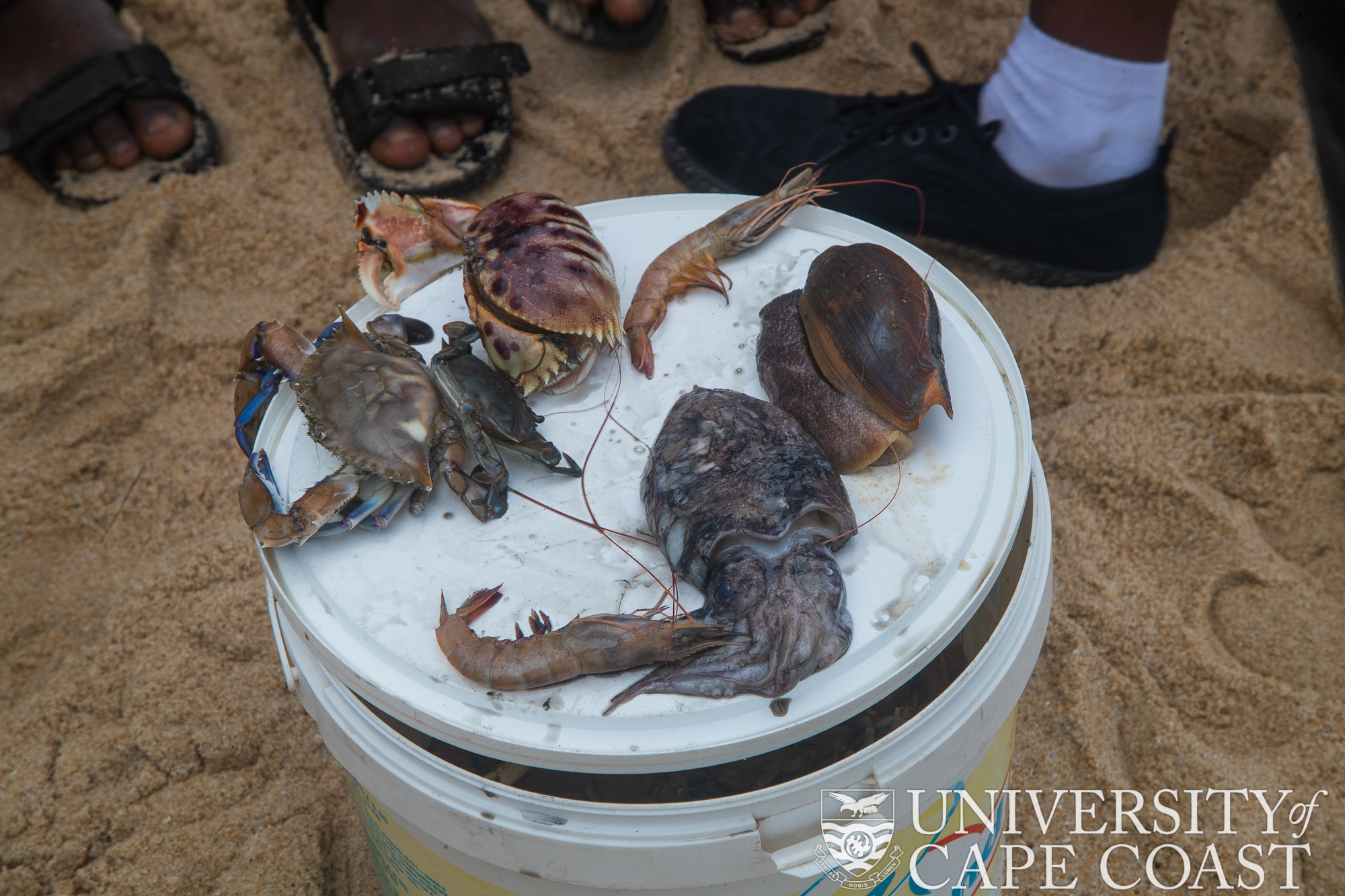A team from the Department of Fisheries and Aquatic Sciences (DFAS) of the University of Cape Coast (UCC), led by Dr. Margaret Fafa Awushie Akwetey, has embarked on a 3-day educational outreach programme which aimed at introducing marine biodiversity to basic school pupils between the ages of 8 and 12 years.
Dubbed, “Through a Child's Eye - A Snapshot of Marine Biodiversity”, the outreach had pupils selected from three basic schools within the Cape Coast Metropolis. The schools were Abakem CRAN Presby School, Archbishop Amissah Memorial Catholic School and St. Francis Catholic Primary School.
Faculty of the DFAS with the school children at the rocky and sandy shores
Together with the pupils, the team visited the rocky and sandy shores, along the coastline of Cape Coast. At the Iture rocky beach, the school children explored the bare rocks, crevices and tide pools, and saw a variety of organisms such as hermit crabs, sea urchins, sea anemones, sea slugs, barnacles, sponges, whelks, periwinkles, and seaweeds. The pupils also observed biodiversity such as ghost crabs, clams, and snails at the OLA Sandy Beach.
The programme focused on the non-fish component of marine biodiversity.
Dr. Margaret Akwetey interacting with some of the pupils
According to Dr. Margaret Akwetey, many people along the coast know much about fish, while little is known about non-fish species, especially those that do not form part of our diet. She explained that children learning and understanding the variety of life in the ocean and their importance will foster a sense of responsibility and encourage them to develop healthy habits to safeguard the marine environment at a young age.
“...Children are naturally curious. Therefore, introducing them to marine life at an early age will birth their interests in science and nature which could inspire passion and future careers in marine or environmental sciences and conservation," Dr. Akwetey added.
The Head of the Department of Fisheries and Aquatic Sciences, Prof. Joseph Aggrey-Fynn, also emphasised the importance of marine biodiversity in supporting livelihoods, provision of food and pharmaceutical products, regulating the global climate, and the need to learn about it.
Some of the pupils catching hermit crabs, sea urchins, sea anemones, and sea slugs.
He expressed hope that the educational outreach would have some ripple effects where knowledge acquired by the pupils will inspire future careers in marine and ecological sciences.
Variety of organisms at the beach
The outreach was funded by the British Ecological Society (BES), and supported by staff and students from the Department of Fisheries and Aquatic Sciences, Department of Conservation Biology and Entomology, Africa Centre of Excellence in Coastal Resilience (ACECoR) and Department of Molecular Biology and Biotechnology.
Participants expressed their appreciation to the organisers and facilitators for embarking on such impactful activity.
Source: Documentation and Information Section-UCC

